One of the topics I give talks on is the science of reading for pleasure (R4P), including how it has an impact on stress levels and mental health in general. I did this recently as the opening keynote for the Youth Libraries Group conference in Glasgow. I am doing a teeny taster talk on the topic for the ASCEL (Association of Senior Children's and Education Librarians) conference next month.
Somehow, in my teeny taster talk I’m going to cover both brain aspects of R4P AND how we can help young people (and ourselves, because YP are not in fact much different!) manage anxiety and stress.
Whether you were/are at either of those, you might like a rundown of some of the points I make, and some accompanying handouts and resources.
Key brain aspects of R4P
If you would like your organisation to know more about this, book me to speak! It’s one of my favourite topics.
You’ll find some of my references in this handout:
Three (relevant to R4P) ways in which humans brains are wired:
Wired for Pleasure - our brain’s limbic system (all about pleasure, reward, instinct, reaction, temptation, drive) is generally stronger than our cool, controlling prefrontal cortex (responsible for looking ahead and doing the controlled, correct, wise, considered thing). So we are drawn towards the immediately rewarding thing over the distantly beneficial thing. When we manage to resist temptation and do that distantly beneficial thing, that’s impressive but usually not sustainable for long. It is difficult to build a good habit if we get no short-term benefit (pleasure/reward) from it. Pleasure wins overall.
Wired for Print - there is a small but appreciable benefit to reading in print over screen when it comes to processing and recalling something difficult. (See some of the resources on my “Science Digital vs Print” handout below for the evidence.) In my talk I explain some technical things about reading which help explain this difference. When text is trivial or easy, this may not matter; when it is difficult and important to our understanding or learning about something new or complex, it might make all the difference. You have perhaps noticed times when you’re reading something on screen and you make a choice to print it because you sense that you need to.
Wired for Poetry - fascinating research* points to our brain “stepping up” and becoming more alert when we read or hear language that is a bit unusual, a bit quirky or unexpected, or that has an interesting pattern. (*See the “Difficulty of text” item in the “Science ReadingBrain” handout above.)
And a fourth…
A Problem - many people don’t like reading, just as many people don’t like physical exercise, and, since we are wired for pleasure, it will be difficult to get those people to read…
The analogy with physical exercise works well
Not only are both R4P and exercise unpopular with some people, they are also both good for us. Not only that, they both also have some very similar benefits in the brain. They both:
•Help grow brain connections
•Benefit mood, mental health, self-esteem
•Reduce stress
•Benefit sleep
And not only that, we can also use the same method to encourage those who don’t like them to do them more and, indeed, to begin to enjoy them.
Four steps to motivation
Here is my very own strategy for motivating anyone to do R4P (and it can be adapted seamlessly to help people do more of anything that is both beneficial and disliked). I talk about this in many talks as it’s applicable in many contexts.
The following image shows how to apply the steps to anything but below that I’ll show you how it applies to R4P specifically.
Believe that you’ll benefit - and choose your desired benefit
When we think we’ll benefit, we are likely to try. However, you now know that the limbic system (all about pleasure NOW) is stronger than the prefrontal cortex (all about considered control and looking ahead). USE this knowledge and focus on immediate or almost immediate, pleasure-based benefits to the thing you want to motivate yourself towards. For example, “If I read for half an hour now, I will feel less stressed and less anxious” or “I will laugh” rather than “If I read for half an hour now, I will do better in my exams in three years’ time”.
You will find that even young people who believe they don’t like reading agree that some of these are possible benefits even for them and they have had the experience of such pleasure, as long as the book was the right choice. Similarly with physical activity: if you get them to think of times they have enjoyed being active, everyone can think of something they like. They just usually haven’t associated it with “exercise” because they associate “exercise” with “things I don’t enjoy about exercise.”
See this handout for a range of “benefits” that many people, including young people, might look for from reading:
Choose your reading material to fit your desired benefit and your likes/dislikes. So, if you want to laugh, choose a funny book; if you want to relax, choose a book that will take you away from your worries and be easy to get into.
Now decide when to do it and make the setting conducive to reading. For example, get into bed in time to read for half an hour. Or tell your family that you’re reading and don’t want to be disturbed. Perhaps use noise-cancelling headphones or go somewhere peaceful.
Crucially, after you’ve had your reading session, notice the effects and whether you achieved your aim. this means that a) you’ll be more likely to do it again and b) if you chose the wrong book you can choose differently next time.
Readaxation - reading to relax
The science that shows R4P to help reduce stress is so strong (see handout!) that I invented my own name for it: readaxation.
Readaxation is the deliberate act of reading with the aim of feeling less stressed. It fits all the points above. Psychologically, knowing the intended benefit increases the benefit.
There are very few people who would honestly disagree that reading the right book in the right circumstances could be a relaxing activity. It’s a matter of finding the right book and the right situation for reading. A book you want to read in a place you want to be, where you can feel safe and unpressured.
Here is what I call my Readaxation Diary. It makes a nice activity to do, on your own or in a group. It works for all ages.
Here is a Readaxation Pledge, which makes another fun activity:
Here are some tips for promoting R4P:
Here are some tips for building a reading culture in a school (and you can adapt for home use):
But finally, a VERY IMPORTANT WARNING:
If you would like to hear all the details behind these points and receive all the resources including my Powerpoints, do consider booking me to speak in 2025. I have a restricted diary and bookings are going fast so don’t wait till the last minute!
Practising what I preach
Recently, I committed to reading (for pleasure, not work) for 30 minutes after lunch every day. And I learnt something very interesting. I’ll write about that another time…

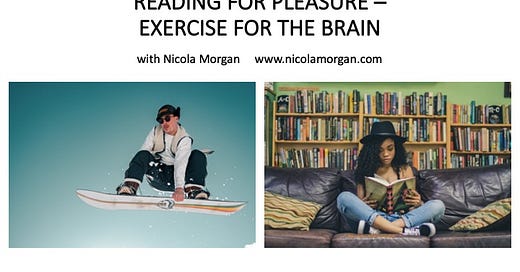



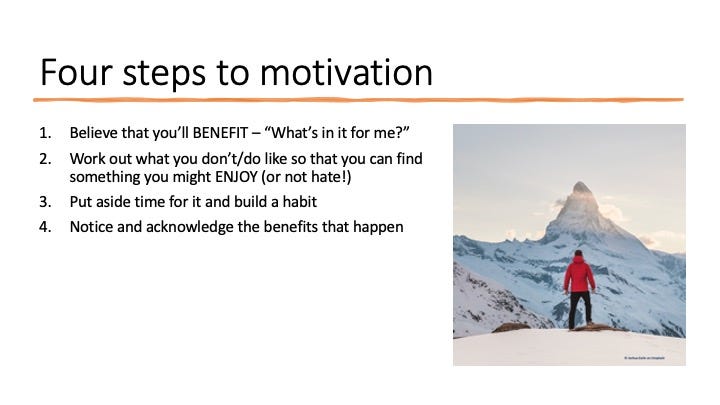
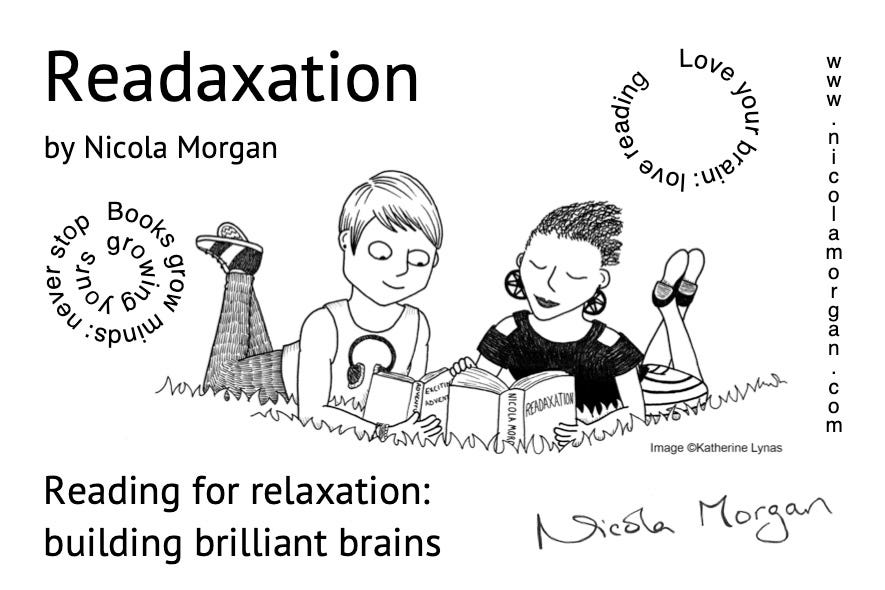
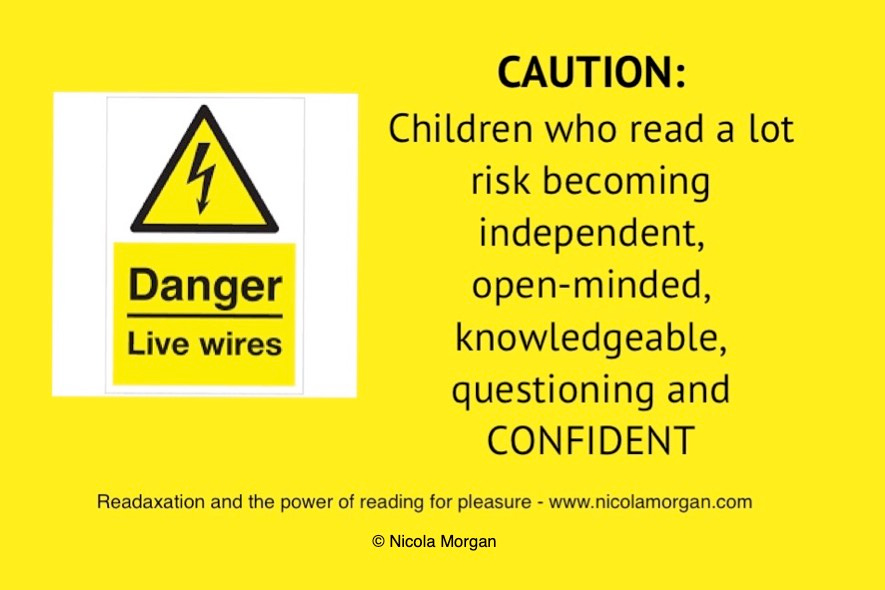
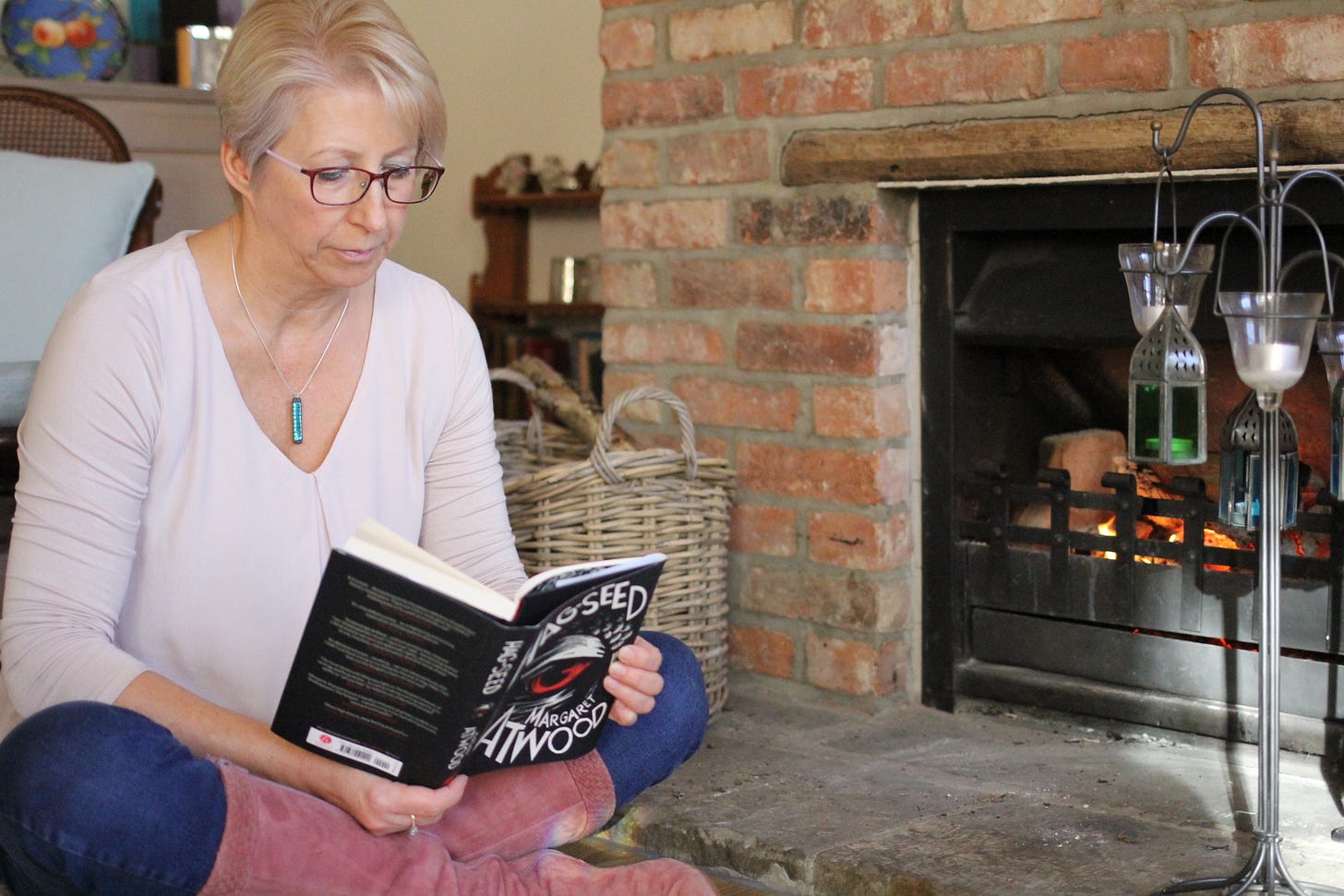
This is such a great post about not just the benefits of reading for pleasure, but also includes practical suggestions for how to encourage this.